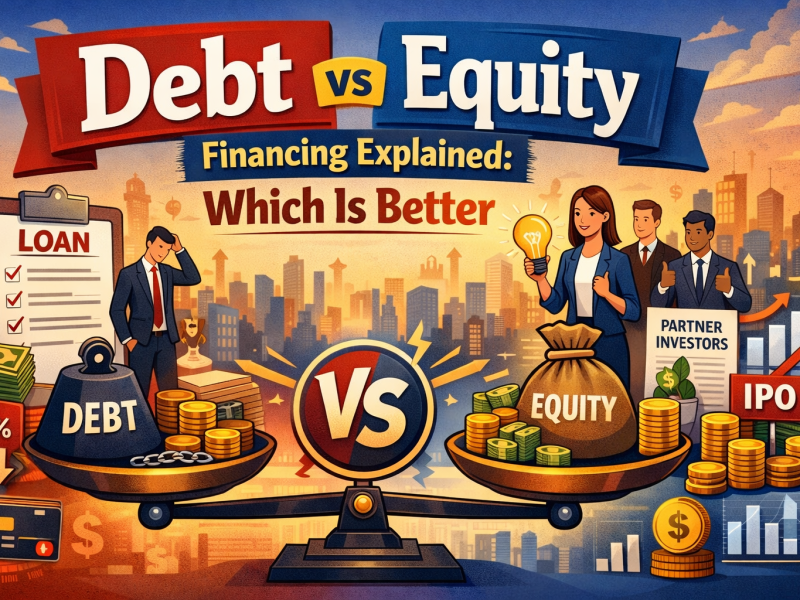Every job comes with its own tools. For a finance professional, one of the most valuable tools is a financial model. Understanding what is financial modeling and how can it help you in your career might be the turning point you’re looking for.
At its heart, financial modeling means building a structured representation of a company’s financial situation. It usually happens in Excel. But don’t mistake it for simple data entry or number crunching. It’s a full process of building logic, linking assumptions, and projecting performance. In short, it’s used to predict outcomes, test decisions, and tell financial stories with numbers.
Let’s take you through a brief guide on what financial modelling is and the impact it can have in your career.
Why Financial Modeling Matters
In the finance world, time is money. Nobody wants to read a 30-page report when they can look at a single model. Models help banks, investors, CFOs, and even startup founders understand whether something makes sense financially.
For example, a startup wants funding. An investor will ask, “What will your numbers look like in five years?” That’s where the model steps in. It takes raw figures and turns them into forecasts. The startup doesn’t just say they’ll grow. They show how, based on costs, margins, customer acquisition, and pricing.
The same logic applies to big corporations. Before launching a product, buying another company, or entering a new market, the first step is often: build a model.
Who Uses Financial Models in Real Life?
Many different professionals need to understand financial modeling and how can it help you in your career. It’s not limited to investment banking.
Here’s a quick guide:
| Profession | How Financial Modeling Helps |
| Investment Bankers | Valuing companies during M&A and IPOs |
| Equity Research Analysts | Creating future earnings projections for stock recommendations |
| Credit Analysts | Assessing repayment capacity of borrowers |
| CFOs and Finance Teams | Budgeting, forecasting, scenario analysis |
| Entrepreneurs and Startups | Building pitch decks, evaluating funding rounds |
| Consultants | Analysing client performance, cost structure and strategy |
The table proves the point: it’s not just one corner of finance. Learning financial modeling opens doors in many directions.
What a Financial Model Actually Includes
If you’ve never seen a model before, it might sound complex. But it’s usually built from a few basic parts.
- Historical Data
- Assumptions
- Income Statement
- Balance Sheet
- Cash Flow Statement
- Valuation (like DCF or Comps)
- Sensitivity Analysis
- Charts and Dashboards
These parts link together. For instance, assumptions (like sales growth or interest rate) affect future revenue, which then affects profit, taxes, and so on. The better the logic, the better the output.
Good models don’t just sit in files. They’re discussed in boardrooms, shared with investors, and used to make high-stakes calls.
Financial Modelling And How Can It Help You in Your Career?
First, it sets you apart. Plenty of CVs mention Excel. Fewer can actually show how they used it to build something that matters.
Second, it boosts confidence. When someone knows how numbers come together, they stop guessing and start contributing. Whether you’re speaking to a CEO or a client, financial modelling lets you have that conversation backed by figures.
Third, it makes you valuable. Roles like FP&A, equity research, M&A, corporate strategy — they all expect candidates to be model-ready. If you know how to model, you can slot into projects faster.
And last, it’s a skill that sticks. Even if you switch jobs or industries, the way of thinking stays with you. Breaking a problem into parts, building a structure, testing scenarios — these are lifelong assets.
Is It Difficult to Learn?
That depends. If someone already enjoys numbers and logic, it becomes easier. What matters more is learning from the right source.
You need three things:
- A strong grip on accounting and finance concepts
- Excel modelling skills
- Real-life project examples
Watching random YouTube videos won’t do the job. You might understand the surface but miss the deeper connections.
Who Should Learn It?
If you’re in any of these categories, financial modeling can be the best profession you can possibly pursue.
- Freshers preparing for finance interviews
- MBA students who want better summer internships
- Engineers making a career switch
- Accountants looking to specialise
- Entrepreneurs preparing funding decks
- Professionals stuck in reporting roles who want to upskill
Why It Matters in the Real World
Let’s say you’re in a job interview. You’re asked to build a DCF model for a company. If you freeze, it shows lack of experience. But if you can ask the right questions, work with clean formulas, and present your logic clearly, it says you’re ready.
It’s not about being perfect. Even in real jobs, models get adjusted all the time. What matters is clarity, structure, and the ability to answer ‘why’.
Clients don’t want fancy formatting. They want answers. “What happens if our cost goes up 10%?” “What if sales slow down for a quarter?” A good model shows this in minutes.
That’s why more firms are including modelling in job assessments. It shows how a person thinks under pressure.
Final Thoughts
So that’s all about financial modeling and “How can it help you in your career?” Well, we’ve already answered it simply. But here’s a recap. It gives you a real skill that companies need and value. It’s not fluff. It’s about logic, structure, impact and about getting the numbers to tell a story clearly and quickly.
For anyone thinking seriously about a career in finance or consulting, financial modeling isn’t optional anymore. It’s a must.
And if you want to learn from people who’ve worked in the industry, taught others, and helped them land jobs at top firms, The WallStreet School is a great place to begin.
FAQ:
- What is financial modeling and how can it help you in your career if you’re a student?
It gives you a practical edge. Recruiters see too many generic applications. A candidate who can talk about a working model or who has solved a real-life case stands out. - Is financial modeling useful for someone who’s not from a finance background?
Absolutely. People from engineering or maths backgrounds often pick it up quickly. What matters is your willingness to learn the structure and logic. - Can financial modeling be self-taught?
It’s possible, but not always effective. Structured guidance from industry experts helps you understand both the ‘how’ and the ‘why’. Practice cases also make a big difference.
- Do companies really test this skill during interviews?
Yes. Many roles include a model-building round or a case study. Interviewers often want to see how you handle assumptions, link sheets, and build clean outputs.



